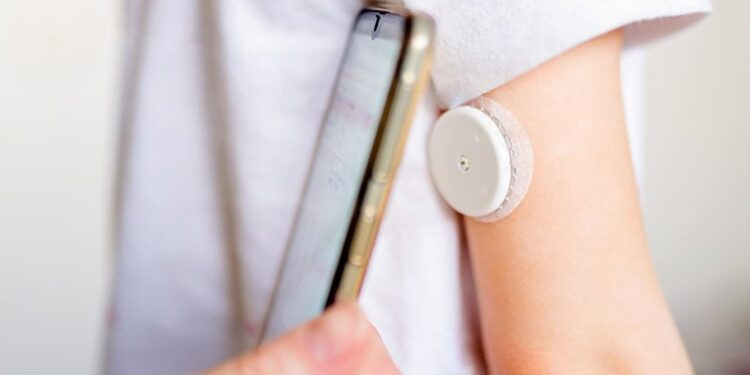TOPLINE:
In children aged 2-6 years with type 1 diabetes (T1D) who required at least six units of insulin daily, using the auto mode of the MiniMed 780G hybrid closed-loop insulin delivery system improved glycemic control compared to the system’s manual mode — without increasing insulin requirements — and maintained an acceptable safety profile.
METHODOLOGY:
- Poor glycemic control during childhood can adversely affect both brain development and plasticity. Automated insulin delivery systems have shown promising results in children younger than 15 years.
- Researchers conducted a prospective, multinational trial to investigate the efficacy and safety of automated insulin delivery with the MiniMed 780G system, recruiting 98 children aged 2-6 years with T1D (mean hemoglobin A1c level, 7.53%; 49% girls) between March and September 2023, all of whom required at least six units of insulin daily.
- The trial began with a 2-week run-in phase, in which the MiniMed 780G system was used in manual mode along with the suspend-before-low (SBL) feature, with the low glucose threshold set at 65 mg/dL. This was followed by a 26-week randomly assigned crossover phase, where patients received either 12 weeks of the auto mode, a 2-week washout, and 12 weeks of the manual + SBL mode or the reverse sequence (manual + SBL mode, washout, and then auto mode).
- The primary endpoint was the adjusted difference in the percentage of time in range (70-180 mg/dL) between the auto and manual + SBL modes, with noninferiority defined as an absolute margin of 7.5 percentage points.
- Secondary endpoints included the adjusted difference in mean hemoglobin A1c levels at the end of each 12-week period, tested for noninferiority against an absolute margin of 0.4 percentage points; safety outcomes were also evaluated.
TAKEAWAY:
- The mean time in range of the patients was 58.1% during the run-in phase and 68.3% and 58.3% when using the auto and manual + SBL modes, respectively; the adjusted difference in the time in range between the auto and manual + SBL modes was 9.9 percentage points (95% CI, 8.0-11.7).
- The adjusted difference in mean hemoglobin A1c levels between the auto and manual + SBL modes was −0.61 percentage points (95% CI, −0.76 to −0.46).
- The mean total daily insulin dose requirement was similar between the two modes.
- No severe hypoglycemia events or serious adverse events related to the device or procedure were reported.
IN PRACTICE:
“These important findings add to the existing evidence on the safety and efficacy of hybrid closed-loop systems in this vulnerable population and, pending regulatory approval, will increase the options for young children and caregivers to choose their preferred hybrid closed-loop system,” Charlotte K. Boughton, MD, PhD, from the University of Cambridge, Cambridge, England, wrote in a related comment.
SOURCE:
This study was led by Tadej Battelino, MD, University of Ljubljana, Ljubljana, Slovenia. It was published online in The Lancet Diabetes & Endocrinology.
LIMITATIONS:
Each center managed its own hemoglobin A1c testing, potentially introducing variations. Excluding children who required fewer than six units of insulin per day may have limited the generalizability of the findings. This study did not capture data on food intake or physical activity, and its sample size was insufficient to assess safety events that occurred infrequently.
DISCLOSURES:
This study was funded by Medtronic. Four authors reported being employees of Medtronic. Several other authors reported receiving consultant or speaker fees, advisory board fees, research grants, and travel grants from Medtronic and various other pharmaceutical and healthcare companies.
This article was created using several editorial tools, including AI, as part of the process. Human editors reviewed this content before publication.
Source link : https://www.medscape.com/viewarticle/automated-insulin-delivery-shows-promise-young-children-2025a1000hpy?src=rss
Author :
Publish date : 2025-07-03 11:58:00
Copyright for syndicated content belongs to the linked Source.



